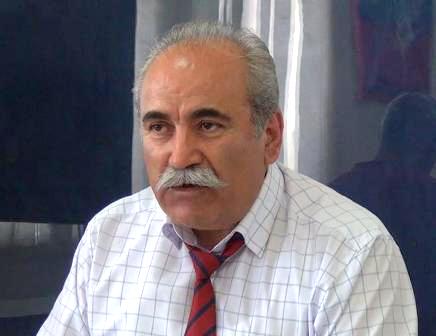 The main feature of public and political thought of the early 21st century is that the challenges facing the modern world often remain as they are. Yes, the world is in search of solutions to new problems, and this serves as a basis for many thinkers to consider the present a period of uncertainties. Books that help seek and find comprehensive solutions to the current challenges for foreign and Armenian political and historiographical thinkers are simply a necessity. In the case of the Armenians, they are more than in-demand since, as a society and an academic community, we Armenians can’t allow ourselves the luxury of staying behind the developments of intelligentsia in the world.
The main feature of public and political thought of the early 21st century is that the challenges facing the modern world often remain as they are. Yes, the world is in search of solutions to new problems, and this serves as a basis for many thinkers to consider the present a period of uncertainties. Books that help seek and find comprehensive solutions to the current challenges for foreign and Armenian political and historiographical thinkers are simply a necessity. In the case of the Armenians, they are more than in-demand since, as a society and an academic community, we Armenians can’t allow ourselves the luxury of staying behind the developments of intelligentsia in the world.
In this context, Hranush Hakobyan’s 652-page book “The Armenian Diaspora in the Changing World” is of high value and serves as a serious contribution to Diaspora studies and Armenian social sciences, which is valuable not only in terms of science, but also in terms of methodology and political science. This book, which is based on the fundamental theoretical models and approaches in modern social sciences, provides the formulas for overcoming the challenges of the modern world (active flows of migration, reciprocal penetration of cultures and globalization and the search for identity) with modern interpretations and on the background of the Armenian Diaspora.
It is clear that the current trends of migration and demography will force future thinkers to touch upon the various definitions and interpretations of the multi-layered concept of “Diaspora”. The rapid changes taking place in public life and the peculiarities of globalization will expand the content of the concept, importance will be attached to the identity of the person and nations, and the content and significance of Diaspora studies will be enriched. Hakobyan’s book “The Armenian Diaspora in the Changing World” is also important in that, besides the historical and political analysis, it also presents proposals and a vision for the partnership between Armenia and the Diaspora, which are like two vessels in contact with each other. In other words, it is an active algorithm for the development of relations, partnership and complementarity.
The author has dedicated the first chapter of the book to the origin and current description of the Armenian Diaspora. The origin of the Diaspora and Armenian communities is the condensation of the history of our nation. The author has managed to masterfully combine the rich palette of the Armenian Diaspora, the history of its development and the current state, touch upon the establishment of pan-Armenian networks, the tremendous efforts of Armenian schools, churches, cultural institutions, benevolent organizations and other structures and comprehensively present the role of Armenian communities in the international recognition and condemnation of the Armenian Genocide and the participation of Armenians in the development and advancement of world civilization. It is clear to see the in-depth and comprehensive knowledge of issues presented by the author, as well as the modernity and innovativeness of the ideas that are proposed. The recommendations are based on the knowledge of new instrumentation for unified and effective solutions to the challenges facing Armenia and the Armenian Diaspora and the achievement of a synergic outcome, which is important in terms of theoretical discussions and practical application.
The main emphasis in the second chapter of the monograph is on the growing risks and challenges in the rapidly changing world that had their negative impact on the Armenians. They make the unresolved issues of all Armenians issues that are the current objectives. Those issues are the following: exercise of the inviolable right of the people of Artsakh to self-determination; international recognition of the Armenian Genocide and the inimical policy of Turkey and Azerbaijan against Armenia, Artsakh and the Diaspora. In this sense, Hakobyan’s recommendation is practical and very effective. Hakobyan recommends to strengthen our unified potential and to gear it towards the advancement and development of Armenia and Artsakh. The proposed formula is unity. The author is right when she starts placing emphasis on the importance of identity and the system of values strengthening the Armenian identity (the search for identity in the modern world will be the major factor that is characteristic of social relations). The Armenian language, Armenian culture, historical heritage and memory, family, Christianity and national institutions serve as the pillars of that identity.
The third chapter shows the author not only as a meticulous and gifted researcher, but also an experienced state figure with a broad vision. Hranush Hakobyan discloses the formula for the Armenia-Diaspora partnership and relations by comprehensively evaluating the new stage of the state policy, the constitutionalization of the Diaspora and the activities of the Ministry of Diaspora. Enrichment of the essence and content of the state policy on the Diaspora and the philosophy of the activities of the Ministry of Diaspora show the importance of participation, and this chapter of the monograph serves as a unique call in terms of consolidating the potential of the Armenian nation. The successes of Armenians will reinforce the Armenians and our identity.
The monograph “The Armenian Diaspora in the Changing World” also serves as a tremendous database with many tables and lists of names that make it even more comprehensive and make this modern and important book become of encyclopedic value.
Aram Ananyan
Director of “Armenpress” Armenian News Agency
Candidate of Historical Sciences







